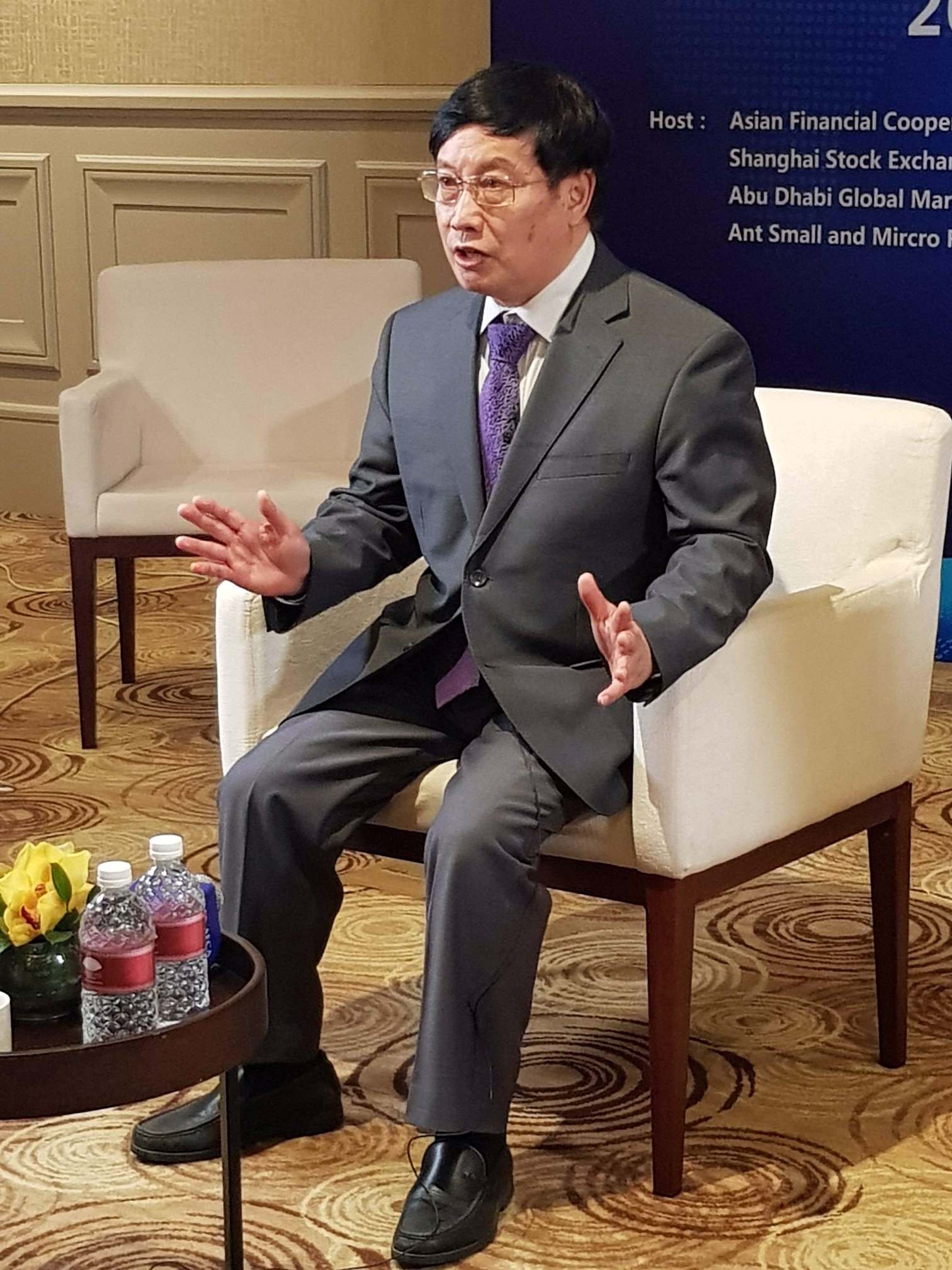
Money Stories
22:40, 29-Jan-2019
Fin-tech Cooperation Committee created to boost regional growth
By Miro Lu

A young, tech-savvy population, openness to experiment and strong government backing have made Asia the hottest spot for financial technology in the world.
It's no surprise that Asia's fintech business is projected to become a billion dollar industry by the end of 2020.
To take advantage of this projected growth and to improve the fintech ecosystem, a pan-Asia Fintech Cooperation Committee (FTCC) has been launched in Singapore recently.
The committee has been established under the aegis of the Asian Financial Cooperation Association (AFCA), a China-backed non-profit entity which was launched in 2017.
AFCA secretary-general Yang Zaiping said that the committee is meant to bring “openness and inclusiveness” and help create a platform for better “communication and cooperation” between various regional stakeholders.

AFCA secretary-general Yang Zaiping speaks with CGTN./CGTN Photo
AFCA secretary-general Yang Zaiping speaks with CGTN./CGTN Photo
During a one-on-one interview with CGTN, Yang highlighted China's position as a leader in fintech. He spoke of a two-pronged development of fintech in the country.
“On one hand, some non-financial institutions, in particular, some technical companies have developed fintech. Another direction given the traditional financial institutions, for example, commercial bank or some security company [adopted] fintech very quickly.”
A massive contributor to China's fintech growth has been digital or e-payments. Citing figures from research firm iResearch, ‘The Financial Times' had reported that mobile payments in China hit 17 trillion U.S. dollars in 2017.
Yang believes that China's fintech growth also brings with it a certain responsibility. He said China's innovators should look beyond digital payments and focus on other areas like microfinance and agriculture.
Why Singapore was chosen as the FTCC launch location
Yang hailed Singapore and most importantly the role of its Monetary Authority (MAS) in making it a preferred destination for fintech companies especially the startups.
He, in fact, urged China to learn from Singapore, which has “adopted a friendly or expansively or forward looking regulatory framework approach.”
According to Randstad Singapore's 2019 Market Outlook Report, “The fintech sector in Singapore is in a hyper-growth stage. New startups and entrants are disrupting the market, and established companies are finding new and innovative ways to be more agile and flexible to stay competitive in the environment.”
There has been a concerted effort by MAS to attract startups by creating an environment conducive for innovation and disruptive technology.
A series of initiatives have been undertaken by MAS in this regard. It organised the biggest fintech event in the world: the Singapore FinTech Festival saw over 45,000 participants from 130 countries in 2018.
‘Business Sans Borders', is another initiative that leverages on Artificial Intelligence to facilitate the internationalisation and digitalisation of small- and medium-sized enterprises.
Yang was all praises for Singapore's ‘sandbox' approach during his interaction with CGTN. “We think Singapore's sandbox approach is amenable for Asia's fintech development," he said.
The Monetary Authority's ‘sandbox approach' allows firms with innovative ideas to test them out in a less regulated environment with real customers.
Southeast Asia ripe for Chinese Fintech Companies
Statistics show that 420 million people in Southeast Asia are under 40, and they rely heavily on internet-based services for their daily needs.
With increasing competition and strict regulation at home, Chinese fintech companies are looking overseas for expansion, and Southeast Asia is often their first stop.
Yang Zaiping explained that there is a “big base for China's payment technology” in the region. And Southeast Asia is the logical choice for further initiatives in this regard.

SITEMAP
Copyright © 2018 CGTN. Beijing ICP prepared NO.16065310-3
Copyright © 2018 CGTN. Beijing ICP prepared NO.16065310-3